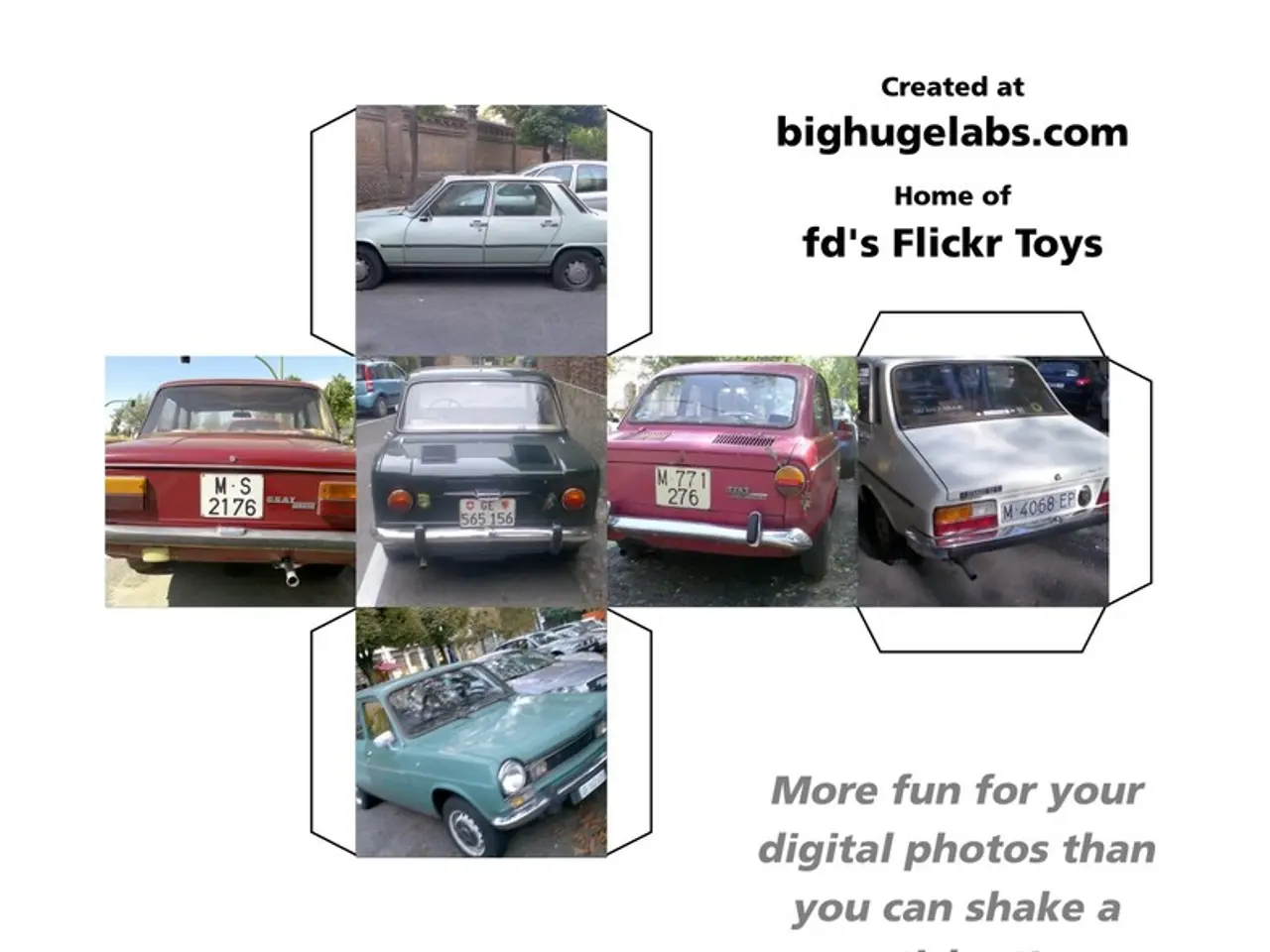China's Automotive Landscape Shifts - Toyota Pioneers Innovative Strategy for Self-Driving Cars
Toyota, the renowned Japanese automaker, is making significant strides in the development of autonomous driving technology in China. The company is collaborating with local startups and technology firms to integrate advanced driver-assistance systems (ADAS) and LiDAR technology into their vehicles.
One of the key partnerships is with Chinese LiDAR company Hesai, which supplies its next-generation ATX LiDAR system for Toyota’s new energy vehicle (NEV) models produced by Toyota’s Chinese joint ventures. These vehicles, scheduled for mass production in 2026, will feature Hesai’s compact, cost-effective LiDAR, marking a push toward Level 2+ autonomous driving capabilities in China’s booming NEV market.
Toyota is also localizing smart driving features by integrating software developed by Chinese startups. For instance, the upcoming Toyota bZ7 BEV sedan launching in early 2026 will include Momenta’s AI-powered ADAS suite along with Huawei’s HarmonyOS for the cockpit system.
The company's strategy prioritizes system stability and technical maturity over rapid iteration, distinguishing Toyota’s approach from more aggressive Chinese automakers. The focus is on ensuring that cars connect with human passengers, maintaining a commitment to the driving feel that is characteristic of Toyota’s traditional models.
This measured pace in development allows Toyota to compete effectively within China’s unique market dynamics. The company is not solely focused on battery electric vehicles (BEVs), as indicated by the statement "But wait! China is not going all in on BEVs." Instead, Toyota is targeting mass-market adoption of proven Level 2+ autonomy in Chinese NEVs from 2026 onward.
The evolution of cars in China is remarkable, with up-and-coming manufacturers focusing on the development of BEVs. The Auto Shanghai event, a significant platform for showcasing the latest automotive innovations, is featured in the program. The focus on autonomous driving and electric vehicles in China is attracting global attention in the automotive industry.
In summary, Toyota’s autonomous driving strategy in China is characterized by deep collaboration with local technology startups, targeting mass-market adoption of proven Level 2+ autonomy, emphasizing technical maturity, system stability, and cost efficiency, and leveraging partnerships to manage development complexity and localize features for Chinese consumers. This multi-faceted collaboration approach allows Toyota to accelerate its autonomous driving deployment in China while balancing innovation with reliability and cost control.
[World Toyota News] Dream Car Art Contest, which attracted entries from children worldwide, is also showcased on social media platforms Facebook and X (formerly Twitter). The contest features visionary vehicles closely integrated into daily life and filled with hope for the future.
Tatsuro Ueda, the CEO of Toyota in charge of the China region, discusses local IT technology developments and the momentum of battery electric vehicles (BEVs) in China. Ueda's insights provide a glimpse into Toyota's approach to carmaking in China, a region that is the world’s largest automobile market, with approximately 200 carmakers competing.
Unmanned autonomous taxis are now operating on public roads in China, signalling the country's leadership in car electrification and automation trends. With Toyota at the forefront of this revolution, the future of autonomous driving in China looks promising.
- Toyota, in collaboration with Chinese technology firms like Hesai and Huawei, is working towards integrating advanced driver-assistance systems and LiDAR technology for electric vehicles, aiming for Level 2+ autonomous driving capabilities in China's booming new energy vehicle market.
- In alignment with this, Toyota is localizing smart driving features by incorporating AI-powered ADAS suites developed by Chinese startups, such as Momenta, to be featured in upcoming electric vehicle models in 2026.
- Beyond just electric vehicles, Toyota's strategy for China focuses on balancing innovation with reliability and cost control, targeting mass-market adoption of proven Level 2+ autonomy across all new energy vehicle models.
- As the world's largest automobile market, China is experiencing significant advancements in the fields of electric vehicles, data-and-cloud-computing, and autonomous driving, grabbing global attention in the automotive industry, with events like the Auto Shanghai showcasing these developments and trends.




